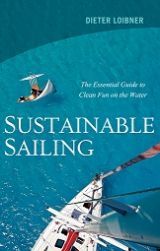Saturday, April 4, 2020
Bol d'Or 2019 - Swiss Press Award for Loris Von Siebenthal !
 Loris von Siebenthal SUI, the Geneva photographer and sailor (among others in Matchrace Team Eric Monnin SUI) was awarded the Swiss Sports Press Award for his photos of the storm that mixed up the 600 boat fleet of the 2019 Bol d'Or on Lake Geneva. ----- The news.
Loris von Siebenthal SUI, the Geneva photographer and sailor (among others in Matchrace Team Eric Monnin SUI) was awarded the Swiss Sports Press Award for his photos of the storm that mixed up the 600 boat fleet of the 2019 Bol d'Or on Lake Geneva. ----- The news.





















